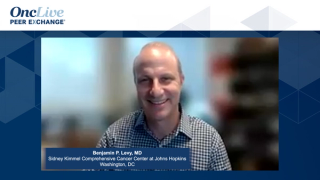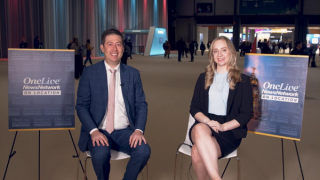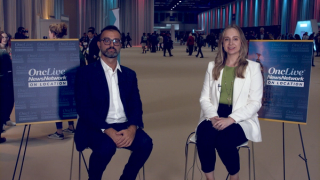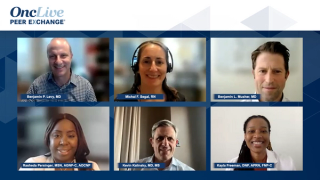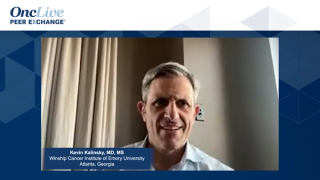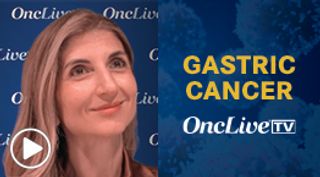
Gastrointestinal Cancer
Latest News

FDA Approves Pembrolizumab Plus Chemotherapy for Locally Advanced Unresectable or Metastatic Biliary Tract Cancer
Latest Videos

CME Content
More News

The addition of pembrolizumab to combination of trastuzumab and chemotherapy led to an improvement in progression-free survival vs placebo plus trastuzumab and chemotherapy in the first-line treatment of patients with metastatic HER2-positive gastric or gastroesophageal junction cancer, particularly in those whose tumors had a PD-L1 combined positive score.

The addition of durvalumab to 5-fluorouracil, leucovorin, oxaliplatin, and docetaxel produced statistically significant and clinically meaningful improvements in pathological complete response rates vs placebo plus FLOT in patients with resectable gastric cancer or gastroesophageal junction cancer.
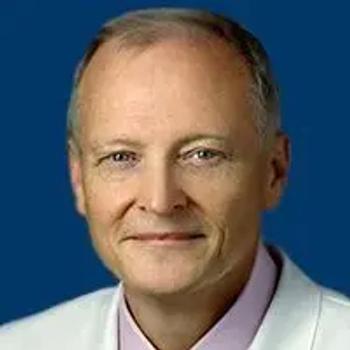
OncLive® and The Ruesch Center for the Cure of Gastrointestinal Cancers at Georgetown Lombardi Comprehensive Cancer Center in Washington, DC, have announced the winners of the 2023 Luminary Award in GI cancers.

The European Medicines Agency’s Committee for Orphan Medical Products has granted orphan drug designation to LSTA1 for the treatment of patients with pancreatic cancer.

The Committee for Medicinal Products for Human Use of the European Medicines Agency has adopted a positive opinion for pembrolizumab plus fluoropyrimidine- and platinum-containing chemotherapy for the frontline treatment of adult patients with HER2-negative gastric or gastroesophageal junction adenocarcinoma.

Treatment with intratumoral large surface area microparticle paclitaxel led to disease control and was well tolerated in patients with locally advanced pancreatic cancer.

The addition of TPST-1120 to the combination of atezolizumab and bevacizumab led to improved responses vs atezolizumab plus bevacizumab alone in the first-line treatment of patients with unresectable or metastatic hepatocellular carcinoma.

Stacey Stein, MD, discusses key considerations when selecting a first-line treatment approach for higher-risk patients with hepatocellular carcinoma, and in what scenarios the combination of atezolizumab and bevacizumab is a viable approach in this population.
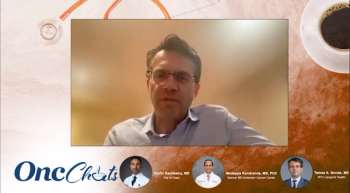
In this final episode of OncChats: Leveraging Endoscopic Ultrasound in Pancreatic Cancer, Toufic A. Kachaamy, MD, Madappa Kundranda, MD, PhD, and Tamas A. Gonda, MD, reiterate that the role of endoscopic therapies in pancreatic cancer continues to evolve.
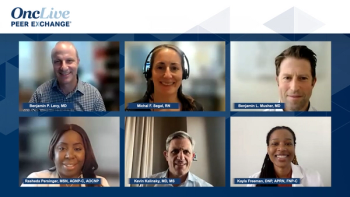
Comprehensive insights on biomarker testing practices for patients with lung or gastrointestinal cancers.

A breast medical oncologist and nurse practitioner review molecular testing practices for patients with breast cancer.
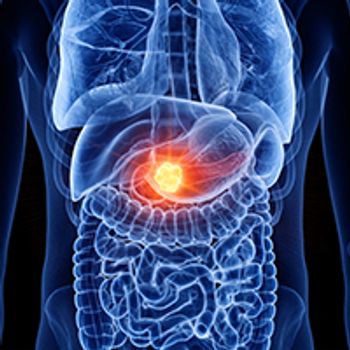
First-line treatment with the combination of motixafortide, cemiplimab-rwlc, gemcitabine, and nab-paclitaxel elicited responses in patients with metastatic pancreatic adenocarcinoma, according to initial data from the pilot portion of a phase 2 trial.
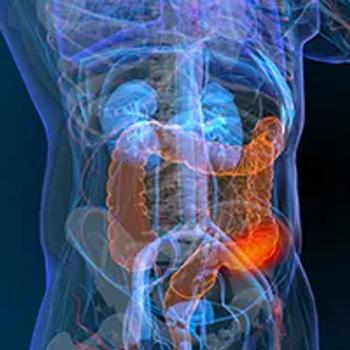
Second- or third-line treatment with the CD47 blocker evorpacept in combination with trastuzumab, ramucirumab, and paclitaxel improved responses vs trastuzumab/ramucirumab/paclitaxel alone in patients with HER2-positive, advanced gastric and gastroesophageal junction cancer.

The FDA has granted a fast track designation to BI 764532 for the treatment of patients with extensive-stage small cell lung cancer that has progressed following at least 2 prior lines of treatment, and for patients with advanced or metastatic extrapulmonary neuroendocrine carcinoma that has progressed following at least 1 prior line of treatment.
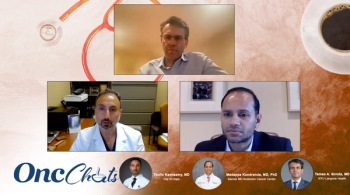
In this sixth episode of OncChats: Leveraging Endoscopic Ultrasound in Pancreatic Cancer, Toufic A. Kachaamy, MD, Madappa Kundranda, MD, PhD, and Tamas A. Gonda, MD, briefly discuss pancreatic cancer ablation and immune modulation.

The FDA has given an orphan drug designation to BDC-1001 for the treatment of patients with gastric cancers, including gastroesophageal junction cancer.

The expert panel discusses the history of antibody-drug conjugates and explores their mechanisms of action.

A panel of cancer-treating specialists introduce the discussion with a broad overview of antibody-drug conjugates (ADCs).

Andrew Ko, MD, FASCO, highlights what the potential approval of zolbetuximab could mean for the first-line treatment paradigm for patients with CLDN18.2-positive gastric/gastroesophageal junction adenocarcinoma and detailed other ongoing research in the gastrointestinal cancer space.
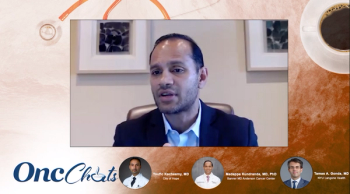
In this fifth episode of OncChats: Leveraging Endoscopic Ultrasound in Pancreatic Cancer, Toufic A. Kachaamy, MD, Madappa Kundranda, MD, PhD, and Tamas A. Gonda, MD, underscore the need for additional research evaluating the role of radiofrequency ablation and other approaches in pancreatic cancer, and avenues that are ripe for further exploration.

First-line treatment with lutetium Lu 177 dotatate plus long-acting octreotide led to a statistically significant and clinically meaningful improvement in progression-free survival compared with high-dose long-acting octreotide alone in newly diagnosed patients with somatostatin receptor–positive, grade 2 and 3, advanced gastroenteropancreatic neuroendocrine tumors.
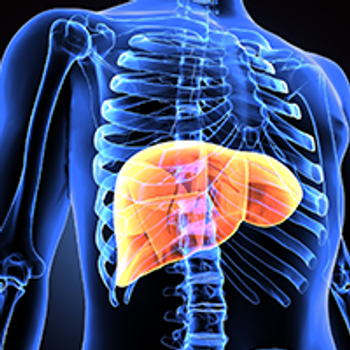
Early lung-specific response to atezolizumab plus bevacizumab was associated with longer overall survival in patients with hepatocellular carcinoma with pulmonary metastases.

Second-line treatment with regorafenib displayed safety in patients with advanced hepatocellular carcinoma who were not eligible for treatment on the phase 3 RESORCE trial, according to data from the phase 2 REGAIN trial.

The FDA has accepted for review a biologics license application seeking the approval of tislelizumab for use in the frontline treatment of patients with unresectable, recurrent, locally advanced or metastatic esophageal squamous cell carcinoma.

The European Commission has approved tislelizumab monotherapy for the treatment of adult patients with unresectable, locally advanced or metastatic esophageal squamous cell carcinoma after prior platinum-based chemotherapy.







